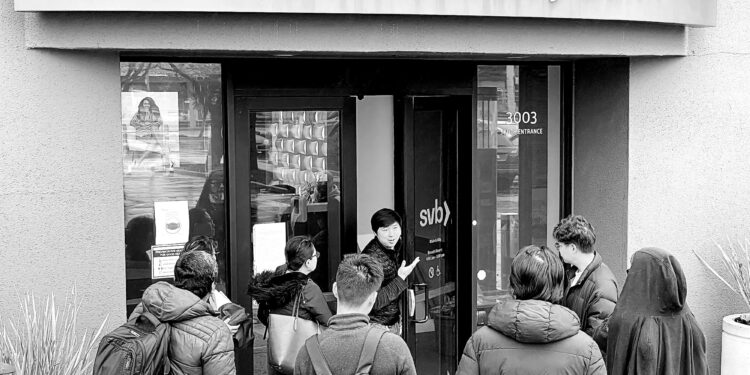- Silicon Valley Bank was taken over by regulators on Friday.
- The closure of the bank, a favorite in the tech community, sent shockwaves across markets.
- These are the biggest winners, and losers, in the wake of the bank failure.
In times of crisis on Wall Street, one must ask: Who is winning, and who is losing?
Depending on where you stand, the unfortunate/fortunate reality of finance is that it is a zero-sum game. When one persons loses, another typically wins.
Which brings us to the downfall of Silicon Valley Bank. Federal regulators stepped in Sunday night with a bailout plan to protect depositors of the bank and quell wider market fears. However, as of Monday afternoon, there was still plenty of panic across the markets about the knock-off effects.
Here’s a rundown of who stands to gain, and lose, the most as a result of the fall of Silicon Valley Bank.
Winners
JPMorgan: Big banks will likely see their deposit base grow as customers of regional banks pull their money over fears their bank will experience a run next. However, the largest bank in the country by assets is positioned to capture the most new market share, marking yet another win for CEO Jamie Dimon.
Short sellers: If you bet big against SVB or Signature Bank, you are sitting pretty. Same goes for any short positions you opened up against other regional banks.
Fintechs offering treasury services and corporate accounts: SVB banked nearly half of all US tech startups, which means there are a lot of companies looking for help managing their cash. And while the big banks, as mentioned, will certainly be a landing spot, so too will fintechs offering similar services. Brex already reportedly received billions of dollars in deposits from SVB customers.
Senator Elizabeth Warren: Love or hate her, the Massachusetts senator has been one of the most vocal critics of Wall Street and (what she deems to be) a lack of regulation on the industry. The failure of SVB will be viewed as confirmation of what she has been preaching. She’s already taken a bit of a victory lap in a New York Times opinion piece that criticizes the bailout.
Private-credit managers: These so-called shadow banks could fill the gap left behind by SVB’s failure, offering to lend to tech startups. It’s the latest boost for an industry that had swollen to $1.2 trillion in late 2022. Here’s a rundown of the key people shaping the private-credit market.
Wall Street traders who bought SBV clients’ deposits for pennies on the dollar: Has an easier buck ever been made? Silicon Valley Bank’s obituary had barely been written before firms were offering to buy up customers’ uninsured deposits for as little as 55 cents on the dollar. That deal turned out to be a windfall for anyone who was able to pull it off, as federal regulators soon guaranteed all deposits.
Tech startups that didn’t use SVB or Signature Bank: The middle- and back-office staff must be absolutely buzzing! What a win for the behind-the-scenes folks. It’s tough to see so much of the industry in pain, but I am sure the treasury and risk management folks at companies that avoid the fray are celebrating.
Anyone that had bad news to share over the weekend: You could have gotten away with announcing A LOT of bad things this weekend without anyone noticing. Down round? Layoffs? Lawsuits? None of it stood a chance of stopping the SVB news train.
Losers
Bank shareholders: Sunday night’s bailout announcement from federal regulators made one thing clear: SVB shareholders are on their own. The rest of the market took note, as shares in other regional banks have tanked on Monday.
Venture capitalists: Let’s set aside the argument of whether or not VCs deserve some of the blame for causing a bank run at SVB. The bank’s failure, and its subsequent bailout, has now caught the attention of the general public. Regulators made clear taxpayers won’t be on the hook for any losses, but that nuance might be lost on most. Instead, some will simply see a community that has long eschewed more regulation getting bailed out by the government. It’s easy to see how VCs get painted as the new bogeymen of finance.
Startups: The short-term concern for startups over making payroll this week seems to have been largely averted. But it’s one thing to have all your cash back. It’s another to not know where to put it. SVB was a key ally to tech startups, offering services and structuring deals in ways most other banks wouldn’t. Who will fill that gap for the industry?
Regional banks: SVB’s bailout was meant to provide assurances that bank deposits are secure and quell fears over additional bank runs. However, the opposite seems to have occurred, at least among smaller regionals. Shares in First Republic Bank and First Horizon, among others, have been brutalized.
Goldman Sachs: The involvement of one of Wall Street’s most powerful investment banks in the SVB saga can’t go unnoticed. The bank advised SVB on its failed plan for a stock offering. Perhaps SVB was already too far gone at that point.
SXSW: The annual conference draws thousands of attendees, especially those in the tech community. But the death of SVB has cast a pall over the traditional lively event. To be honest, it’s probably nothing a few Tex-Mex tacos and a float down the San Marcos River can’t wash away.
Crypto: I know the crypto market has had a tough go of it, but this feels like a massive miss. Can you imagine the Twitter threads and LinkedIn posts if SVB failed in the midst of the crypto boom in 2021? Thought pieces about how crypto could have avoided this problem and why you can’t trust traditional finance. The price of bitcoin might have surpassed $100,000.
Source: I N S I D E R







Recent Comments